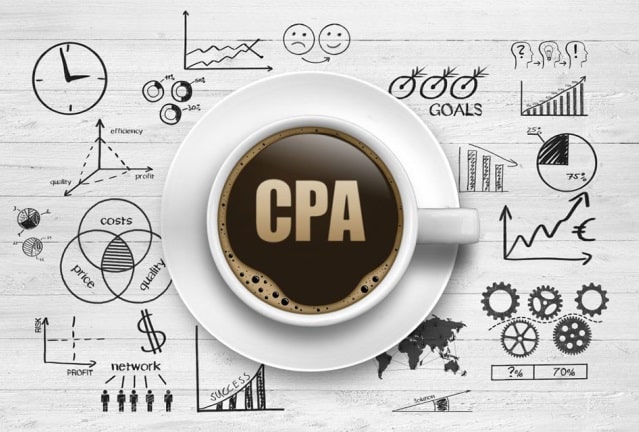Why Choose a CPA Versus a Non-certified Accountant?
Like many business owners, you are probably not sure how to pick a tax accountant in Miami. It is a difficult decision to make and a vital one for your business that will save you much time and resources. Whether you choose a certified public accountant (CPA) or a noncertified accountant, you must take some time to get to know the person that will be handling your finances. Typically, a CPA in Miami is likely to be more educated and experienced in the field of accounting than someone noncertified. Here is some information regarding a CPA versus a non-certified accountant to help you choose what is best for you and your business.

What’s An Accountant?
Accountants handle general accounting responsibilities, bookkeeping in Miami, and the reporting/recording of financial transactions. They deliver a bigger picture of the company’s finances by evaluating financial reports, records, budgets, and tax returns. These responsibilities can vary significantly based on the company or industry the accountant works for, and they may include:
- Bank reconciliation.
- Completion of tax audits.
- Evaluating income statement variances.
- Assisting management with budget preparation.
- Proper documentation of financial transactions.
- Provide insightful financial advice.
- Overseeing tax planning and prep to meet federal requirements.
- Bettering accounting systems.
Accountants will sometimes work beside other professionals in the financial department or helping out senior accountants.
What Does A CPA do?
A CPA will evaluate and report on financial data with their duties including:
- The maintenance, update, and establishment of a company’s policies and procedures, which include bookkeeping, reporting, and monitoring.
- Managing and participating in the creation of budgets.
- Overseeing internal audits to help improve the accuracy of reporting.
- Preparing and generating reports either for tax uses or government audits.
- Evaluating and providing consultation on compensation, benefits, asset, and spending.
- Managing Accounts Payable and Receivable.
- Staying informed about upcoming changes in the finance industry as well as government regulations making sure your company updates policies and procedures as required.
While the above list is the duties a CPA in Pembroke Pines will perform, a CPA generally doesn’t offer services where both an audit and consult are involved.
Licensing
CPAs have passed rigorous testing and strict requirements for licensing in the state where they practice. Besides the 150 hours of college work course, which includes upper-level accounting, business core courses, and auditing, and a year of supervised work under another CPA, candidates must also pass a test on business, tax, and auditing. Then, they become licensed, but it does not stop there. They continue their education in order to stay up to date on important issues in the accounting world.
Accountants, on the other hand, are only required a bachelor’s degree in accounting, finance, business management, or any other similar field although employers generally prefer an accountant with a master’s degree. Accountants generally start their training with an internship and other job training. An accountant may pursue additional certifications to further their careers such as Chartered Financial Analyst (CFA), Certified Management Accountant (CMA), Certified Internal Auditor (CIA), and Certified Fraud Examiner (CFE).
Fiduciary Responsibility
Some businesses are required to have a financial statement audit or review for which a CPA is required to issue the required reports. Additionally, CPAs are considered fiduciaries with a legal duty and responsibility to act in favor of and protect their clients’ interests. While accountants can uphold some ethical standards, they aren’t considered fiduciaries. CPAs must stick to certain ethical standards when managing their clients’ assets.
Code of Ethics
Noncertified accountants have no particular code of ethics to stand by. CPAs, on the other hand, are part of the American Institute of Certified Public Accountant and must abide by certain ethical codes and specialized standards. The AICPA Code of Ethics includes key responsibilities, serving the public interest, honesty, remain uninvolved with conflicts of interest, execute their skills to the best of their ability.
Takes & Regulations
While accountants can prepare proper taxes, CPAs take it a little further by extending exclusive advantages to their clients. CPAs, for example, are more educated on tax codes due to their strict licensing and education requirements. Also, CPAs can represent clients before the IRS when audit support is required – a noncertified accountant can’t do this.
Are CPAs Essential To Business Owners?
Whether you are a business owner or an individual searching for a CPA, you can be audited at any time, so hiring a CPA in Pembroke Pines may be the best thing you can do for yourself. A CPA provides you with proper representation in an audit. Unfortunately, a non-certified accountant is not qualified to provide this type of representation.
Also, companies sometimes need audited financial statements for a publicly-traded business as required by a bank, investors, and so on. Likewise, only CPAs can perform this task. In other words, if you are a savvy business professional, you understand the difference between a CPA and an accountant.
There are times that an accountant may suffice when you only need to deal with menial clerical duties and accounting issues. But there are circumstances when a CPA may be the best choice for you. Usually, A CPA has better qualifications to perform an in-depth analysis and advice on critical matters. For instance, when it comes to tax matters, hiring a CPA to represent you in an audit will make more sense.
Why Does Your Business Need To Hire A CPA?
Running a business can be very rewarding but also time-consuming. Besides creating business strategies, growing your client base, and selling your services, there are several important reasons why you should hire a CPA certified instead of an accountant.
Small businesses should consider hiring a CPA if they expect business growth along the way. With a CPA you have access to an experienced professional’s skills. CPAs can compile, review and audit financial statements a bank may request when it’s time to borrow capital. They can offer business advice to business owners and people into a roadblock. Their unique experience qualifies them as the perfect tax advisor for challenges that may seem impossible at first.
Due to state licensing requirements, CPAs are up to date on state and federal regulations and have the highest ethical standards. Keep in mind, you need a professional accounting system such as accounting software to keep your finances in order. A CPA will be able to monitor your business assets and provide advice on how to improve them. Also, you will need financial statements for your bank, creditors, and investors, which a CPA can ensure they follow the expected accounting standards.
A CPA Can Also Provide Tax Information to Ensure Your Taxes Are Filed Correctly
They can help with tax planning and help reduce your business tax liability. CPAs have the professional credentials to represent your business in cases that involve appeals, audits, and collections. They can manage your payroll and serve as advisors if you want to invest in your business and help it grow. They can help prepare future business proposals and plans for company growth.
Due to the respect CPAs have in the business community, they can help you to grow your business easily and organically. If you are looking for a CPA in Miami, contact My CPA, PA.
Legal Disclaimer
Information only / No Legal Advice Intended
This publication is designed to provide general information regarding the subject matter covered. It is not intended to serve as legal, tax, or other financial advice related to individual situations. Because each individual’s legal, tax, and financial situation is different, specific advice should be tailored to the particular circumstances. For this reason, you are advised to consult with your own attorney, CPA, and/or another advisor regarding your specific situation.
To ensure compliance with requirements imposed by the IRS, we inform you that any US federal tax advice contained in this communication (including any attachments) is not intended or written to be used, and it cannot be used for the purpose of (i) avoiding penalties under the Internal Revenue Code or (ii) promoting, marketing, or recommending to another party any transaction or matter addressed herein. Always seek advice based on your particular circumstances from an independent advisor. Any disclosure, copying, or distribution of this material, or the taking of any action based on it, is strictly prohibited.






